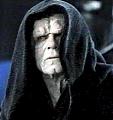In the name of my Country and by the authority of my Government I promise you protection to your persons, property, and rights, Remain at your homes, Pursue your peaceful and customary avocations. Raise not your hands against your brethern, many of your fathers fought for the freedom & independence we now enjoy Being children therefore of the same family with us, and heirs to the same Heritage, the arrival of an army of Friends must be hailed by you with a cordial welcome, You will be emancipated from Tyranny and oppression and restored to the dignified station of freemen. Had I any doubt of eventual success I might ask your assistance but I do not. I come prepared for every contingency. I have a force which will look down all opposition and that force is but the vanguard of a much greater.
If contrary to your own interest & the just expectation of my country, you should take part in the approaching contest, you will be considered and treated as enemies and the horrors, and calamities of war will Stalk before you. [emphasis added]








 . And, if you pop ahead to the War of 1812, you an see a more accurate view of the American commanders intent (General Hull's Proclamation to Canada, July 13th, 1812).
. And, if you pop ahead to the War of 1812, you an see a more accurate view of the American commanders intent (General Hull's Proclamation to Canada, July 13th, 1812). !
!

Bookmarks